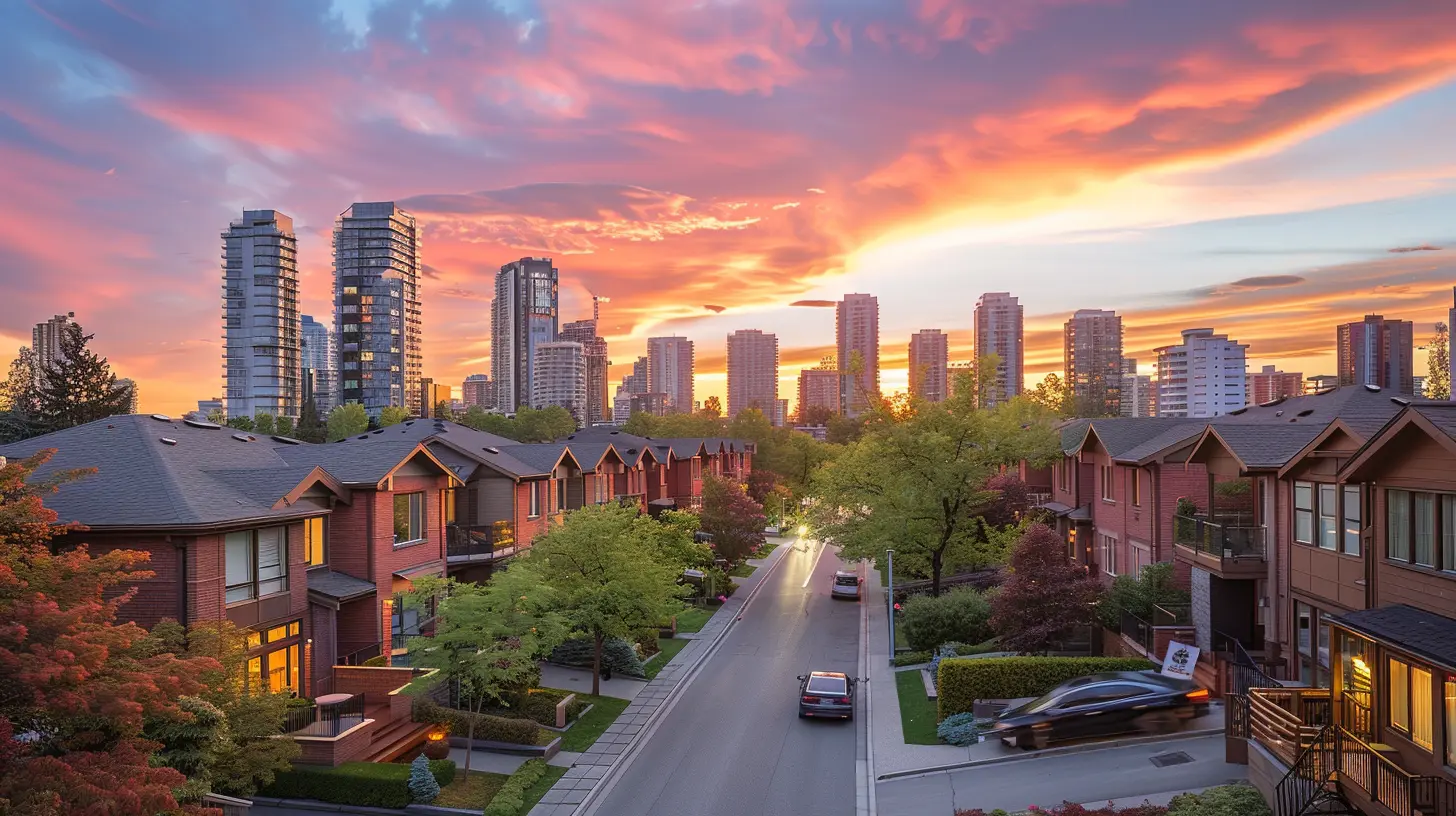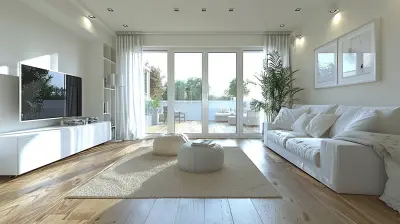Residential vs Commercial Zoning: Key Differences Explained
27 May 2025
When it comes to real estate, zoning laws can feel like a maze. They dictate what can be built where, and let’s be honest, they’re not the most exciting topic—until you realize how much they can impact your property investments or business plans. Whether you're dreaming of a cozy family home or planning to open your next big business venture, understanding residential and commercial zoning is critical. So, let’s break it down and simplify the whole thing, shall we?
What is Zoning, Anyway?
Before diving into the nitty-gritty of residential and commercial zoning, let’s address the elephant in the room: what the heck is zoning? Well, zoning refers to local regulations that determine how you can use a particular piece of land. It's like the rules of the game for property owners. Your local government decides different "zones" in your town or city—residential, commercial, industrial, and so on—and each comes with its own set of dos and don’ts.Think of it as a map that tells you whether you can build a house, open a coffee shop, or start a factory on a given plot of land. Without zoning laws, we’d have strip malls popping up in suburban neighborhoods or factories next to schools… yikes!
Residential Zoning: What’s the Deal?
Residential zoning is exactly what it sounds like—it’s for homes and other types of residential living spaces. You know, the places where people live their daily lives.Types of Residential Zoning
Believe it or not, not all residential zones are created equal. Here are the most common types:1. Single-Family Homes: This is your classic suburban dream—think picket fences and BBQ grills in the backyard. These zones are for detached houses meant for one family.
2. Multi-Family Homes: Duplexes, triplexes, apartment buildings—these zones accommodate more than one household.
3. Mobile or Manufactured Housing: Areas specifically designated for mobile homes or manufactured housing units.
4. Mixed-Use Residential: Some areas allow residential properties to share space with small commercial ventures, like a shop tucked beneath an apartment.
What Can You Build in a Residential Zone?
Generally speaking, you can build homes—single-family, townhomes, apartments, and so on—depending on the type of residential zoning. But don’t get any wild ideas! You usually can’t plop a convenience store, bar, or office building smack dab in the middle of a residential neighborhood.On the flip side, residential zoning often includes restrictions on lot size, building height, and even the type of architectural style allowed. So, if you’re planning to buy land to build a house, these rules matter. The last thing you want is to be halfway through construction only to find out you're breaking some obscure zoning law, right?
Commercial Zoning: A Whole Different Ball Game
Now, let’s talk business—literally. Commercial zoning is for properties used to make money. These zones allow for businesses like restaurants, shops, offices, and other commercial ventures.Types of Commercial Zoning
Just like residential zoning, commercial zoning isn’t one-size-fits-all. Here’s a quick rundown:1. Retail/Shopping: Think malls, plazas, and stores.
2. Office Spaces: These zones are strictly for office buildings, real estate agencies, or tech startups.
3. Entertainment: Bars, theaters, bowling alleys—they all need commercial zoning.
4. General Commercial: These zones are more flexible and allow a mix of retail, restaurant, and office spaces.
What Can You Build in a Commercial Zone?
If you’re thinking about opening a café or starting your dream boutique, commercial zoning is where you want to be. Unlike residential zones, the rules here are a bit looser in terms of building styles and sizes, but they’re stricter when it comes to noise, parking, and business hours. For example, you probably won’t find a 24-hour nightclub allowed in every commercial area—unless the city planners were feeling particularly adventurous.
The Key Differences Between Residential and Commercial Zoning
Okay, so now that we’ve covered the basics, let’s tackle the elephant in the room. What separates residential and commercial zoning? Spoiler alert: it’s not just about what you can build.1. Usage
The most glaring difference is, of course, how the property can be used. Residential zoning is for living spaces, while commercial zoning is for earning spaces. Whether you’re building a home or a Starbucks, this fundamental distinction determines everything else.2. Building Regulations
Residential zones tend to have stricter rules to maintain a certain vibe. Nobody wants a skyscraper shadowing their backyard BBQ, right? On the flip side, commercial zones allow larger and taller buildings, but often require specific features like parking lots or ADA compliance.3. Permits and Approvals
Planning to turn a residential property into a commercial one? Get ready for a headache. Re-zoning—or requesting a "variance"—takes time, paperwork, and money. You’ll often need to justify why your change benefits the community. Spoiler: “Because I want to” won’t cut it.4. Operating Hours
Residential areas are all about peace and quiet, so you can bet the zoning laws reflect that. By contrast, commercial zones are more tolerant of noise and activity during odd hours—think restaurants hosting late-night diners or retail stores prepping for early-morning Black Friday sales.Can You Combine the Two?
Here’s where things get interesting: can you have a property that’s both residential and commercial? The answer is yes, but it depends on the zoning and local laws. Mixed-use zoning is becoming increasingly popular, especially in urban areas. These are properties that combine both residential and commercial spaces—like an apartment building with shops on the ground floor. Pretty neat, right?Why Zoning Matters for Investors
If you’re into real estate, zoning laws can be your best friend or your worst enemy. Knowing the difference between residential and commercial zoning—and the opportunities and limitations each one presents—can make or break your investment.Residential Properties for Investors
Residential real estate is generally more stable and predictable. People always need a place to live, so these properties can provide steady rental income. But don’t expect the same kind of jaw-dropping returns you might see with commercial real estate.Commercial Properties for Investors
Commercial properties, on the other hand, can be cash cows. Businesses tend to pay higher rents than residential tenants, and long-term leases can provide stability. But they also come with risks, like market downturns or a tenant going out of business.Ultimately, the right choice depends on your risk tolerance, goals, and market research.
FAQs About Residential and Commercial Zoning
Q: Can I live in a commercial zone?A: It depends. Some commercial zones allow mixed-use buildings, but you’ll need to check with your local zoning office to make sure.
Q: Can I run a business in a residential zone?
A: Small-scale, home-based businesses may be permitted, but anything that disrupts the residential vibe (like heavy traffic or noise) is usually a no-go.
Q: How do I find out the zoning of a property?
A: Start with your local government or city planner’s office. Many municipalities also have online zoning maps.
Final Thoughts
Residential and commercial zoning might seem complicated at first, but once you understand the basics, it’s pretty straightforward. One is for living, the other is for working—it’s really that simple. But knowing the key differences and understanding how they impact your property plans? That’s where the gold is. Whether you’re buying a home, investing in real estate, or starting a business, zoning laws can be the deciding factor between success and a whole lot of regret. So take the time to do your homework—it’ll be worth it!all images in this post were generated using AI tools
Category:
Zoning RegulationsAuthor:

Travis Lozano
Discussion
rate this article
3 comments
Noelle Curry
In the tapestry of land where dreams intertwine, Residential whispers of home, while commerce dares to shine. Explore the lines that shape our spaces divine.
June 2, 2025 at 4:05 AM

Travis Lozano
Thank you for your poetic reflection! It beautifully encapsulates the essence of residential and commercial zoning.
Corinne Hahn
Residential dreams or commercial schemes? Choose wisely!
May 31, 2025 at 4:31 AM

Travis Lozano
Both have their merits! It depends on your goals—residential offers community and comfort, while commercial provides investment potential and growth.
Evangeline McClary
Residential zoning is like a warm hug from a cozy blanket, while commercial zoning struts in with a top hat and a briefcase. Both have their charm, but pick your favorite!
May 28, 2025 at 1:01 PM

Travis Lozano
Thank you for the creative analogy! Both residential and commercial zoning serve important roles in shaping our communities, and it's fascinating to explore their unique characteristics.



